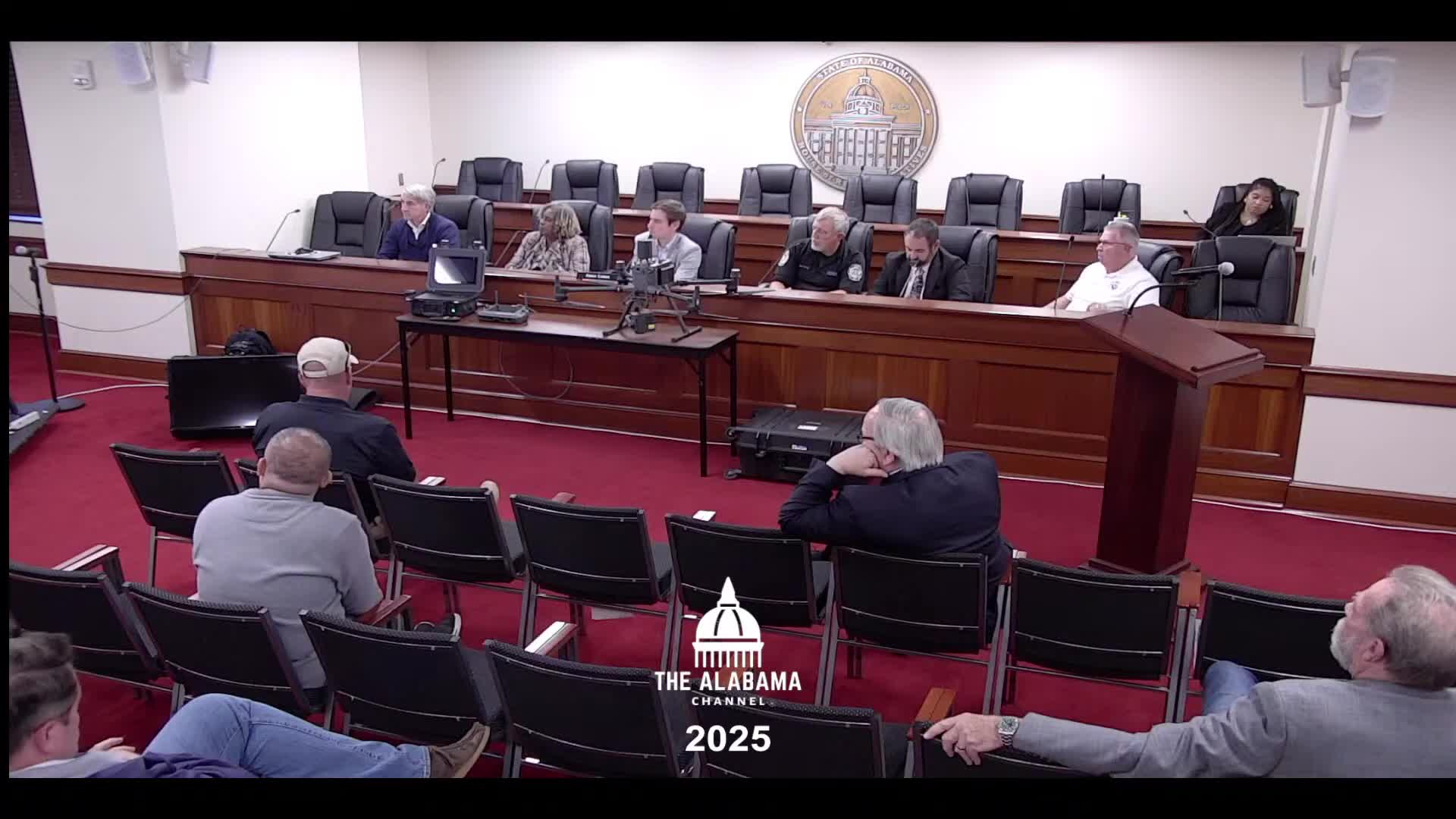Alabama committee weighs cybersecurity, costs and timelines if foreign‑made drones are restricted
Get AI-powered insights, summaries, and transcripts
Subscribe
Summary
Industry and state witnesses told the Joint Interim Committees that federal and state restrictions on foreign‑made small unmanned aircraft could protect networks but would impose steep costs and long lead times for replacement.
State and industry witnesses told the Joint Interim Committees that federal and state restrictions on foreign‑made small unmanned aircraft could protect networks but would impose steep costs and long lead times for replacement.
Mason Sisk, director of government affairs for the Association for Unmanned Vehicle Systems International (AUVSI), told the committee that federal actions to limit foreign‑made drones are part of a broader effort to bolster domestic manufacturing and address cybersecurity and supply‑chain vulnerabilities. Sisk cited federal steps including the American Security Drone Act (2023) and provisions in the fiscal‑year 2025 National Defense Authorization Act requiring a federal determination on certain manufacturers; he warned that, absent agency action, affected products could be placed on an FCC "covered list," which could bar importation after a Dec. 23 deadline.
"Transitioning away from the small UAS manufactured or assembled by foreign adversaries is vital to safeguarding America's national security," Sisk said, and he urged an orderly replacement strategy and grant support for local agencies.
Industry and state officials urged a phased approach. A representative from Skyfire and other participants said replacing existing fleets will not be immediate: some U.S. alternatives lack necessary capabilities, may be far more expensive, and could take 12–16 months or longer to integrate into operational workflows.
Jay Towne, during committee discussion, framed the core cybersecurity risk as persistent network threats that could move from a foreign‑made drone into government servers, exfiltrating personally identifiable information and other sensitive data — a concern he said exceeds the narrower worry about incidental public posting of imagery.
State operators told the committee that the estimated immediate replacement cost for one program would be about $3.5 million, and that availability of batteries and spare parts could limit the useful life of current aircraft. Representatives asked legislators to consider transition grants or phased timelines so that first responders are not left without critical capabilities.
Ending: The committee heard arguments on both security and operational grounds and asked staff to prepare a balanced report for the January legislative session; no procurement prohibition was enacted at the hearing.
